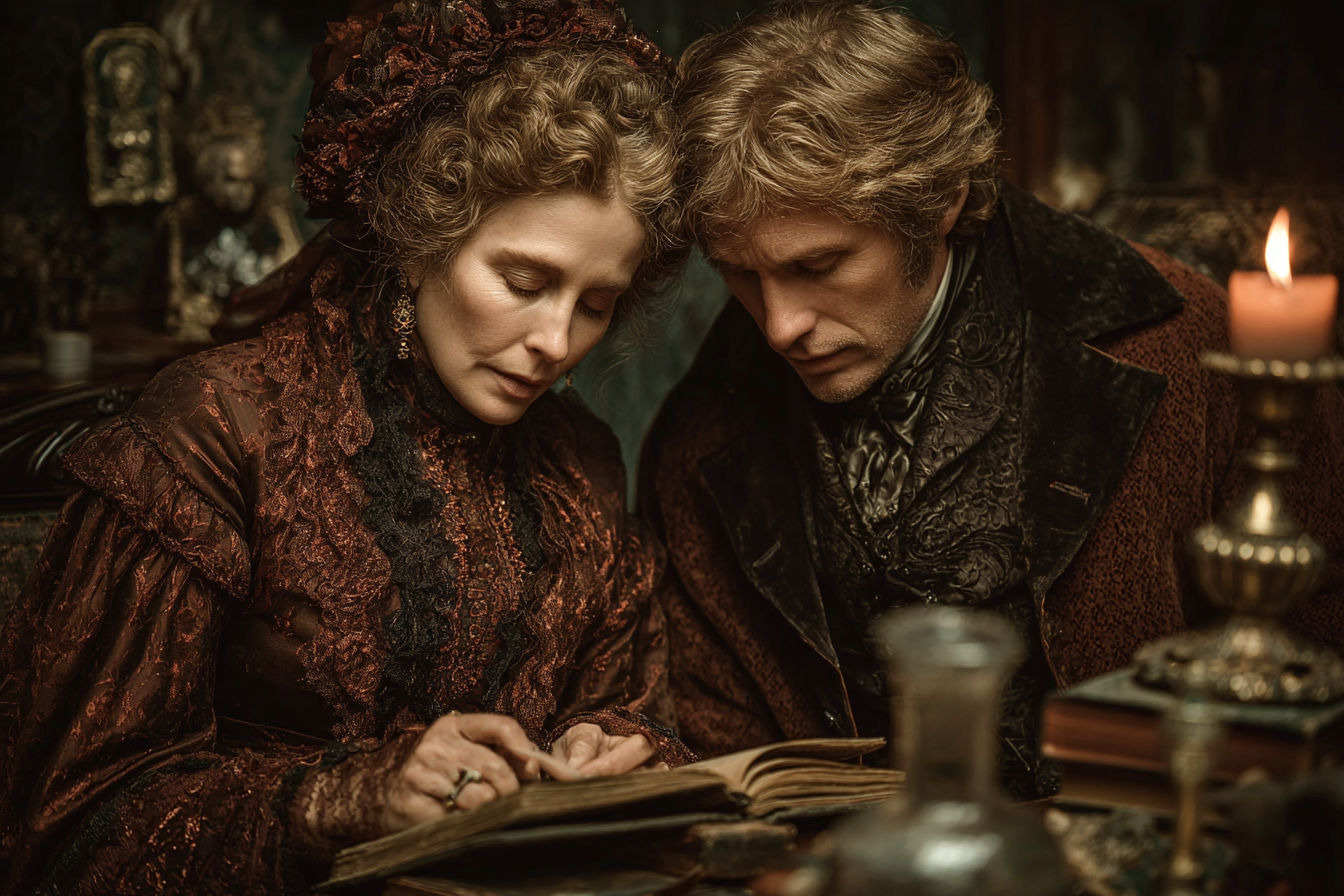How to Succeed Without Drama, Struggle, or Burning It All Down
In personal development, we often glorify struggle—the starving artist, the rejected genius, the lone visionary battling against the world. Stories of tortured souls like Van Gogh, Sylvia Plath, or Nietzsche sell because they fit a narrative: Greatness requires suffering.
But what if that’s not always true?
Elizabeth and William Gaskell, a 19th-century literary power couple, offer a different model for success. Unlike the Shelleys’ explosive marriage or Dickens’ bitter divorce, the Gaskells thrived without self-destructive rebellion. Elizabeth Gaskell became one of England’s most beloved novelists (North and South, Cranford), while William Gaskell, a Unitarian minister, supported her career while pursuing his own meaningful work.
Their story is a quiet antidote to the idea that you must destroy everything to create something. Instead, they show how gratitude, partnership, and steady effort can build lasting success—without the drama.
A Marriage of Mutual Respect
Many creative people struggle with authority—whether from spouses, employers, or societal expectations. Some assume that any constraint is oppression, leading to self-sabotage. The Gaskells prove otherwise.
How William Supported Elizabeth’s Work
- He acted as her first editor. Elizabeth composed aloud while William transcribed, refining sentences in real time.
- He defended her from critics. When Mary Barton (1848) was attacked for its “radical” portrayal of poverty, William wrote essays defending her realism.
- He managed domestic burdens. While Elizabeth wrote, he handled correspondence, finances, and even childcare—rare for a Victorian husband.
Elizabeth, in turn, never dismissed his contributions as “unartistic.” She publicly credited him, writing:
“I could not have done half of it without his calm good sense.”
Why This Matters:
- Authority isn’t oppressive by itself. Sometimes, structure enables freedom.
- You don’t have to resent help to be independent.
Avoid the “Tormented Genius” Trap
Compare the Gaskells to their peers:
- The Brontës wrote in isolation, battling illness and poverty.
- Charles Dickens resented his wife’s domestic demands, eventually abandoning her.
- George Eliot (Mary Ann Evans) lived in scandal, her work overshadowed by her “immoral” relationship.
The Gaskells, meanwhile, used stability to their advantage instead of fighting it.
Elizabeth Used Domestic Life as Inspiration
While some artists reject ordinary life as “uninspiring,” Elizabeth mined it for material:
- Cranford (1853) was a witty, affectionate satire of small-town gossip.
- Wives and Daughters (1866) explored family dynamics with humor, not bitterness.
She didn’t need to escape marriage to create great art—she found richness within it.
Why This Matters:
- Suffering isn’t needed for creativity.
- You can work within a system instead of always rebelling against it.
The Grace of Gratitude
Elizabeth came from privilege—raised by a wealthy aunt, educated, and well-traveled. Unlike Dickens (who hid his childhood shame) or Hardy (who resented his humble roots), she acknowledged her advantages without apology.
In Wives and Daughters, she wrote:
“The luckiest people are those who make the best of what they find.”
William, too, enjoyed his role as a minister without existential angst. His sermons focused on practical goodness—feeding the poor, educating children—not some far off torment.
Why This Matters:
- Gratitude for good fortune isn’t weakness—it’s wisdom.
- Resenting advantages wastes energy better spent on creation.
When Authority Isn’t the Enemy
Modern self-help often portrays all rules as limitations to smash. But the Gaskells show that structure enables freedom.
How They Worked Within Society
- Elizabeth met deadlines. Unlike Lord Byron (who delivered Childe Harold late to spite his editor), she treated publishing as a partnership.
- William submitted to church hierarchy—not out of blind obedience, but because it freed him to focus on activism.
They didn’t waste energy fighting battles they didn’t need to.
Why This Matters:
- Not every rule is a cage. Some are guardrails.
- Picking your battles = more energy for what matters.
The Power of the Un-Dramatic Life
The Gaskells’ legacy isn’t a fiery passion or radical rebellion—it’s the art of sustained, shared effort.
Three Lessons for Modern Readers
- Support isn’t surrender. Accepting help isn’t a failure of independence.
- Gratitude fuels growth. Resenting good fortune only slows you down.
- Not every rule is confining. Sometimes, structure is the ladder.
You Don’t Have to Burn It All Down to Shine
For every person who needs to “break free,” there’s another who needs to stop fighting ghosts. The Gaskells’ quiet success reminds us:
Greatness doesn’t always require suffering. Sometimes, it just requires showing up—day after day—with someone who believes in you.
Final Thought
If you reflexively resist authority, ask:
“Is this battle necessary—or am I inventing dragons to slay?”
The Gaskells slayed none. They simply got to work.





